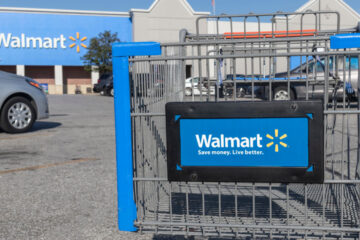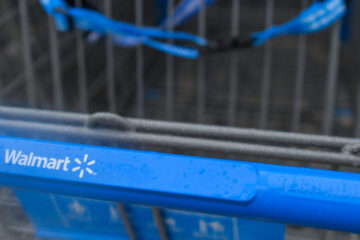When the Covid-19 pandemic devastated the retail sector beginning in March 2020, sanitary paper companies benefited from the call to accelerate their toilet paper, paper towel, facial tissue, and napkin production to meet huge demand from the public.
People were stocking up on all of the different sanitary paper products, as many workers had transitioned to remote work at home and a large percentage of the workforce began using more at-home paper products instead of the sanitary paper offered at work.
💵💰Don’t miss the move: Subscribe to TheStreet’s free daily newsletter💰💵
By April 12, 2020, 73% of U.S. stores were sold out of toilet paper, Reuters reported at the time, but the market ramped up quickly, as by April 19, 2020, 48% of stores were sold out. But that’s still a high percentage of stores without toilet paper.
Related: Huge burger chain franchisee files for Chapter 11 bankruptcy
The scarce supply of sanitary paper products led consumers to begin hoarding any stock they could find, increasing the need to restock the shelves.
The leading sanitary paper producers ramped up production and reaped the financial benefits of increased sales of the products.
Toilet paper sales in mid-March 2020 rose by 216.8%, according to Adweek, but stabilized by June 2020.
3 companies control 78% of toilet paper market
The U.S. paper towel and bathroom tissue sector has been dominated by three manufacturers — Georgia-Pacific, which makes Brawny and Angel Soft brands; Kimberly-Clark, which manufactures Scott, Cottonelle, and Kleenex; and Procter & Gamble, which makes Charmin, Bounty, and Puffs. The three companies combined hold 78% of the U.S. market share of toilet paper, according to a National Library of Medicine report.
Some of the smaller sanitary paper companies, facing severe supply chain issues, struggled to compete during and after the pandemic, and some manufacturers weren’t able to avoid financial distress and a bankruptcy filing.
Gorham Paper and Tissue, which manufactured White Mountain Tissue, in November 2020 filed for Chapter 11 protection facing the effects of the pandemic and in January sold its assets to Behrens Investment Group. The company was rebranded White Mountain Paper Company.
High demand for toilet paper during the Covid-19 pandemic initially generated a huge increase in revenue for sanitary paper companies.
Royal Paper files bankruptcy to sell assets
Fast-forward to about 4-1/2 years later, and major sanitary paper producer Royal Paper on April 8, 2025, filed for Chapter 11 protection, seeking to sell its assets to the U.S. affiliate of Italian sanitary paper company Sofidel Group for a stalking-horse bid of $126 million.
Related: Another huge auto parts brand files for Chapter 11 bankruptcy
The Phoenix-based debtor, which manufactures private-label toilet paper, paper towels, facial tissues, and napkins for retail customers Aldi, Whole Foods, Trader Joe’s, Kroger, and Meijer, filed its petition after a combination of labor shortages and a fire at one of its distribution facilities impacted its ability to meet customer demand.
More bankruptcies:
Popular restaurant and bar chain files for Chapter 11 bankruptcyPopular athletic shoe chain files for Chapter 11 bankruptcyAward-winning cosmetics brand files for Chapter 11 bankruptcy
Among its private-label products for the at-home market, which comprises 70% of the company’s business, are Whole Foods’ 365 Napkins, Trader Joe’s Super Soft Bath Tissue, and Value Bath Tissue that is sold at Family Dollar.
Royal’s away-from-home market, which includes hotels, restaurants, schools, and hospitals, comprises 30% of its market.
Sofidel’s brands include Regina, Softis, Kittensoft, Papernet, and Hakle.
Royal Paper, founded in 1992, filed a motion on April 8 seeking approval of up to $10 million in debtor-in-possession financing, with $5 million available on interim approval of the motion, to finance its reorganization in bankruptcy.
The debtor, Royal Interco, listed $100 million to $500 million in assets and liabilities in its petition. The company owes over $205 million on a term loan credit agreement and about $24.9 million in unsecured debt, according to a declaration from Chief Restructuring Officer Michael Ragano of Novo Advisors.
Related: Popular breakfast chain franchise files for Chapter 11 bankruptcy


